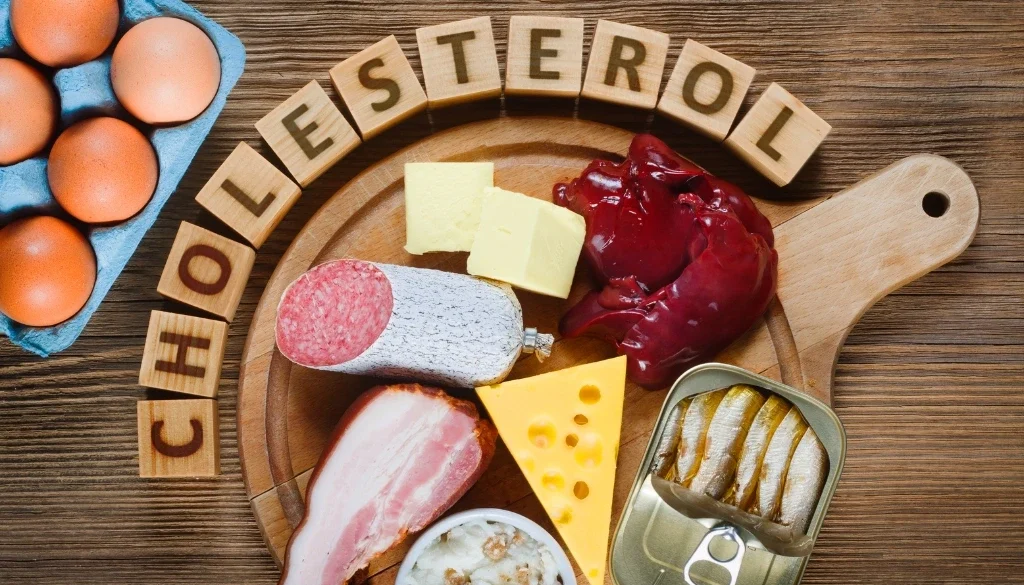High Cholesterol: Causes, Risks, and Treatment Options
Cholesterol is often misunderstood. Many people think of it as something harmful, but in reality, cholesterol is essential for building healthy cells and producing hormones. The problem starts when cholesterol levels rise too high, a condition that can quietly increase your risk of heart disease and stroke.
At Lifeline Clinic Dubai, our internal medicine specialists provide comprehensive high cholesterol treatment in Dubai, helping patients manage their cholesterol levels through personalized care, nutrition guidance, and modern diagnostics.
What Is Cholesterol?
Cholesterol is a fatty, wax-like substance found in your blood. While your body produces most of the cholesterol it needs, you also get some from food, especially from meat, eggs, and dairy products. Cholesterol travels through your bloodstream attached to proteins, this combination is called a lipoprotein.
There are two main types of lipoproteins: HDL and LDL. Understanding the difference between HDL and LDL is crucial for maintaining a healthy heart.
HDL and LDL Difference
HDL (High-Density Lipoprotein) is often called “good cholesterol” because it carries excess cholesterol from the arteries back to the liver, where it’s broken down and removed from the body.
- Higher HDL levels help protect against heart disease.
- You can boost HDL through regular exercise, eating healthy fats (like olive oil and nuts), and avoiding smoking.
LDL (Low-Density Lipoprotein) is known as “bad cholesterol.” When there’s too much LDL in your blood, it can stick to the walls of your arteries, forming plaques that narrow blood vessels and restrict blood flow.
- High LDL increases the risk of heart attack and stroke.
- Reducing saturated fats and processed foods helps lower LDL levels.
In short, the difference between HDL and LDL is that HDL cleans your arteries, while LDL clogs them. For optimal heart health, you want higher HDL and lower LDL.
Common Causes of High Cholesterol
There are several high cholesterol causes, many of which are linked to lifestyle choices and genetics. Knowing these factors helps prevent complications in the long run.
1. Unhealthy Diet
Eating foods high in saturated fats, trans fats, and cholesterol (like fried foods, red meat, butter, and full-fat dairy) can increase your LDL levels.
2. Lack of Exercise
A sedentary lifestyle lowers HDL (“good”) cholesterol and raises LDL (“bad”) cholesterol. Regular physical activity helps balance both.
3. Genetics (Familial Hypercholesterolemia)
Some people inherit genes that cause their liver to remove less LDL from the blood, leading to high cholesterol even with a healthy lifestyle.
4. Obesity or Being Overweight
Extra body weight increases triglycerides and LDL levels while reducing HDL.
5. Smoking and Alcohol Consumption
Smoking damages blood vessels and lowers HDL, while excessive alcohol raises total cholesterol levels.
6. Medical Conditions
Diseases such as diabetes, thyroid disorders, and kidney problems can contribute to high cholesterol.
These are the most common causes of high LDL, which is the type of cholesterol that needs careful management.
Why High Cholesterol Is Dangerous
High cholesterol doesn’t cause immediate symptoms, which is why it’s often called a “silent killer.” Over time, the buildup of fatty deposits in your arteries, known as atherosclerosis -restricts blood flow and can lead to serious health issues such as:
- Heart attack
- Stroke
- Angina (chest pain)
- Peripheral artery disease
Detecting and treating high cholesterol early through regular check-ups can significantly lower these risks.
Diagnosis: How to Know If You Have High Cholesterol
Since high cholesterol usually has no visible symptoms, the only way to know your levels is through a blood test called a lipid profile.
This test measures:
- Total cholesterol
- HDL (good cholesterol)
- LDL (bad cholesterol)
- Triglycerides
Doctors at Lifeline Clinic Dubai recommend regular screening for adults over 30, especially if you have a family history of heart disease, diabetes, or obesity.

High Cholesterol Treatment Options
At Lifeline Clinic, we focus on a combination of lifestyle changes, dietary adjustments, and medical treatments to manage cholesterol effectively.
1. Lifestyle Modifications
- Eat a balanced diet rich in fruits, vegetables, whole grains, and lean proteins.
- Avoid fried and processed foods high in saturated and trans fats.
- Exercise for at least 30 minutes, five times a week.
- Quit smoking and reduce alcohol consumption.
2. Dietary Changes
- Replace red meat with fish or plant-based protein.
- Choose olive oil or avocado oil instead of butter or ghee.
- Add fiber-rich foods like oats, beans, and flaxseeds to your meals.
3. Medication (If Needed)
When lifestyle changes aren’t enough, doctors may prescribe medications such as statins or cholesterol absorption inhibitors to help lower LDL and triglyceride levels.
At Lifeline Clinic, each patient’s high cholesterol treatment is customized based on their age, risk factors, and overall health.
4. Regular Monitoring
Follow-up tests every 3 to 6 months ensure that your cholesterol management plan is working effectively.
Prevention Tips for Healthy Cholesterol
Even if your cholesterol levels are normal, prevention is key to long-term heart health.
- Maintain a healthy weight.
- Stay active – walk, swim, or cycle regularly.
- Manage stress through relaxation techniques like yoga or meditation.
- Schedule yearly check-ups at Lifeline Clinic Dubai to monitor your cholesterol and overall health.
When to See a Doctor
If you have a family history of high cholesterol or heart disease, or if you lead a busy lifestyle with limited exercise, it’s a good idea to consult an internal medicine specialist. Early detection can help you avoid complications later in life.
At Lifeline Clinic Dubai, our team offers expert high cholesterol treatment in Dubai, combining advanced medical testing, diet counseling, and lifestyle support to help you achieve optimal heart health.
Final Thoughts
High cholesterol is manageable with the right approach. By understanding the causes of high LDL, knowing the HDL and LDL difference, and following a balanced lifestyle, you can protect your heart and improve your overall well-being.
If you’re looking for reliable and personalized high cholesterol treatment in a trusted medical center, visit Lifeline Clinic Dubai. Our experienced doctors are here to guide you every step of the way from diagnosis to long-term prevention, so you can live a heart-healthy life.




